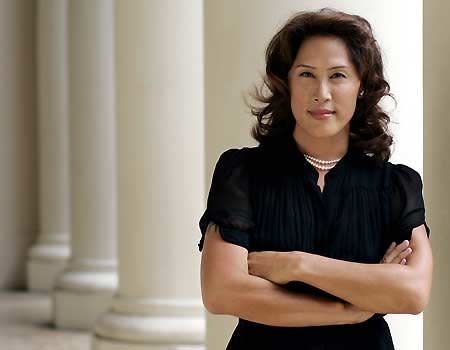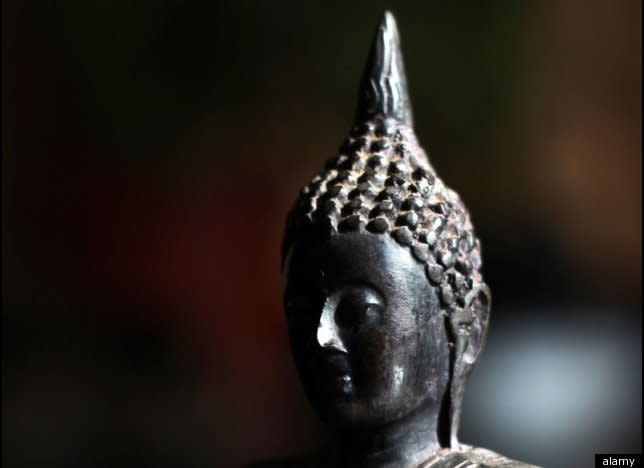Christine Hallquist Scores Historic Win In Vermont's Democratic Gubernatorial Primary
Christine Hallquist on Tuesday became the country’s first openly transgender candidate to win a major party’s nomination in a governor’s race.
Vermont Democrats made history by selecting Hallquist as their gubernatorial nominee in the party’s primary. She defeated three other candidates.
In November’s election, the former CEO faces off against Republican Gov. Phil Scott, who polls show has lost popularity among voters in recent months.
Hallquist joins a number of transgender men and women who have run for office recently, including the country’s first openly transgender state legislator, Virginia’s Danica Roem, who won her office last November.
Gov. Jay Inslee of Washington state, who heads the Democratic Governors Association, said in a statement, “We’re proud of Christine’s historic candidacy, and we welcome her to the most diverse crop of gubernatorial nominees in American history.”
He said Hallquist as governor would “stand up to (President) Donald Trump’s policies that hurt Vermont ― and will lead Vermont forward.”
Hallquist told Politico in an interview that the choice to transition in 2015 was difficult, but that she ultimately decided telling the truth to her three children was more important. The former engineer initially feared losing her job when she came out as trans, but she said Vermont welcomed her with open arms.
And though Hallquist is proud of her decision to transition, she said she wants to run a race based on policy rather than her identity.
“I consider myself a very strong leader with a good history who happens to be transgender,” Hallquist told NBC5 in February. “I mean, I’d ask the voters who may be struggling with the fact I am transgender to try to look beyond that. Try to look at what I’ve done.”
Hallquist announced in February she planned to resign from her executive position at Vermont Electric Coop, which she held for 12 years, to run for governor. She’s also had several roles in her community, including a position on the Hyde Park School Board.
Have you requested your ballot? We are less than a month out. You can request your ballot here: https://t.co/g0yMQO0qfO pic.twitter.com/5kLZHOIhY1
— Christine Hallquist (@christineforvt) July 18, 2018
Hallquist, who voted for Scott in 2016, has criticized the governor for his leadership in office and emphasized how her role as a CEO has prepared her to do things differently.
“The use of the veto is a sign of failure,” Hallquist said in an interview with Vermont Public Radio in July. “What you do is you empower people, you create a clear vision and you create alignment around that vision.”
Scott has vetoed several bills in recent months, including a state budget bill and a bill to raise the minimum wage. Hallquist’s campaign aligns with much of the national party’s ideals, which includes a push for a $15 minimum wage in the state.
Hallquist has focused her campaign thus far on economic issues, supporting unions and pledging to expand internet services in rural areas to help create more job opportunities. She’s also promised to support paid family leave and an expanded health care system.
Until recently, Scott was one of the country’s most popular governors. The Republican held a strong approval rating among voters as he diverged from the national party’s rhetoric on immigration and social issues. Scott’s popularity, however, took a massive dive in the last few weeks after he signed a gun control bill.
Vermont has historically been one of the most lenient states on guns, even allowing open carry without a permit. The new law raised the minimum age for purchasing a firearm to 21, enhanced background check requirements for private gun sales and bans high-capacity magazines and bump stocks.
Protesters called Scott a “traitor” and a “coward” for signing the bill into law.
Scott held a 65 percent approval rating prior to signing the bill in April. A new poll by The Morning Consult published in late July showed the incumbent candidate took a major hit, polling at 47 percent approval.
Hallquist, a gun owner herself, told Politico earlier this month that she “would support regulating guns like we regulate automobiles,” but she also added that she didn’t really “want to talk about” the contentious issue.
This story has been updated with comment from Gov. Jay Inslee of Washington state, head of the Democratic Governors Association.
Related...
Meet The Trans Political Hopefuls Who Aim To Lead The Battle For Equality
Vermont Governor Signs Gun Control Bills Into Law
Rashida Tlaib Wins Democratic Primary For Congress In Michigan
Christine Hallquist May Become America's First Openly Transgender Governor
Also on HuffPost
Kim Coco Iwamoto

Laverne Cox

Louis Gradon Sullivan (1955 - 1991)
![In 1976 <a href="http://www.lousullivansociety.org/about-lou-sullivan.html" target="_hplink">Lou G. Sullivan began applying for</a> gender confirmation surgery, but was rejected because he identified as gay. At the time, "female-to-gay male transsexuality was not recognized by the medical/psychotherapeutic establishment as a legitimate form of gender dysphoria at that time." After mounting a successful campaign to get homosexuality removed from a list of objections which served to keep interested candidates from undergoing surgery, Sullivan finally obtained gender confirmation surgery in 1986. That same year <a href="http://www.lousullivansociety.org/about-lou-sullivan.html" target="_hplink">he organized FTM</a>, "the first peer-support group devoted entirely to female-to-male [transsexual and transvestite] individuals."](https://s.yimg.com/ny/api/res/1.2/v7UnXI45Ch4c5uvZdxkOJg--/YXBwaWQ9aGlnaGxhbmRlcjt3PTk2MA--/https://img.huffingtonpost.com/asset/57eea7201b00000d0cef3894.jpg)
Michael Dillon (1915 - 1962)

Love HuffPost? Become a founding member of HuffPost Plus today.
This article originally appeared on HuffPost.

